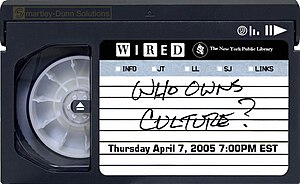And then, meet your twin second cousins, cultural sensitivity and cultural awareness. Oh yes, and here is your crusty old uncle, cultural knowledge….
They all have something to do with culture, and with what we are supposed to do with culture. In the health care setting, we’re expected to be aware of and sensitive to the fact that there are differences in people according to their culture. We’re supposed to take basic and continuing education in culture as applied to healthcare and hence, become competent in culture. One fundamental problem with this is that there are hundreds of different definitions of “culture,” so it’s not even clear what we’re supposed to be competent in.
Culture, in the socio-cultural anthropological sense and not in the high society sense, is permeated with the spirit of The Other. And since all early anthropologists in the US were white English-speaking males, the “Others from another culture” were all non-white, non-native English-speaking people. In the US these different cultures started off with the conveniently located colonized North American indigenous people, the “Indians.” The even older roots of anthropology from the UK were intent on studying “exotic, primitive people from other lands” that were being colonized. Anthropological writings were a source of entertainment for the colonizers back home, as well as a tool for continued conquest of, rule over and exploitations of people from other cultures. It is important to acknowledge these uncomfortable historical facts about anthropology—and about culture. It is important to know that similarly smarmy things are still being done with anthropology and the “study of culture.” Anthropologists are part of modern US war efforts, including in the current war in Afghanistan. Anthropologists have been part of the Vietnam War counter-insurgency, and part of the continued War on Drugs. And they are largely responsible for the current emphasis on cultural competency for health care providers.
There are many problems with cultural competency. Besides the largely unquestioned operational definition of “culture,” as well as its origins in American-European notions of colonialism, institutionalized racism and oppression, there is the idea that culture is static and can be reduced to a laundry list of evil eyes, hot and cold foods and fertility rituals. Then there is the idea that someone can be competent in culture. As if you can get a certification card in cultural competence, just like you can get a certification card in Basic Life Support or Blood-born Pathogens. Oh wait—you can get a cultural competency card. Recently, I would have gotten one, if I had passed the multiple-choice test given as part of an online series of tests to become credentialed by a local hospital. I wasn’t planning to work there, but I had to take the tests in order to have a student placed for a clinical rotation. The test questions seriously irritated me. They were all written with the assumption that people from another culture are non-white ethnic minorities or people from another country.
I have spent the past thirty years working with refugee/immigrant, homeless (majority African-American and Native American) and sexual minority groups of people. I have lived and worked for extended periods of time in Northern Thailand, survived culture shock and reverse culture shock (warning: don’t go from working with malnourished, growth-stunted Burmese street children to Whole Foods in less than 24 hours). The most important resources I had in this work were co-workers from diverse backgrounds and disciplines who I could bounce things off of—frustrations I was having in understanding different patients—frustrations with the lack of adequate interpreter services, frustrations with my own assumptions and biases. We were able to problem-solve—and problem accept—together. There are some things that just can’t be fixed. Our health care team was able to openly discuss racism, oppression, white privilege, ethical dilemmas that no textbook can ever cover, and do informal self-reflection activities during and after clinic. This was not culturally competent care, it was culturally humble care.
Many people from the US bristle at the term “humble,” since it has religious zealot overtones, and it shares the same word root as “humiliate.” I like humble because it is from the Latin “humus:” ground or dirt. Culturally grounded, culturally dirty, culturally humble. Cultural humility was first coined by Tervalon and Murray-Garcia in their 1998 article, “Cultural humility versus cultural competence: a critical distinction in defining physician training outcomes in multicultural education. (Journal of the Poor and Underserved, 9(2) 117-125. Their definition of cultural humility emphasizes a lifelong commitment to self-reflection, and to paying attention to power inequities inherent in the healthcare encounter. It is an interesting article, but is unfortunate in that their one example of cultural competency “gone bad” in clinical care was by a nurse. But then, an otherwise excellent nursing article on cultural humility uses as their one example of global health “gone bad” that of a physician. (Levi, “The Ethics of Nursing International Clinical Experiences” JOGNN, 2009). Being humble is hard work.

